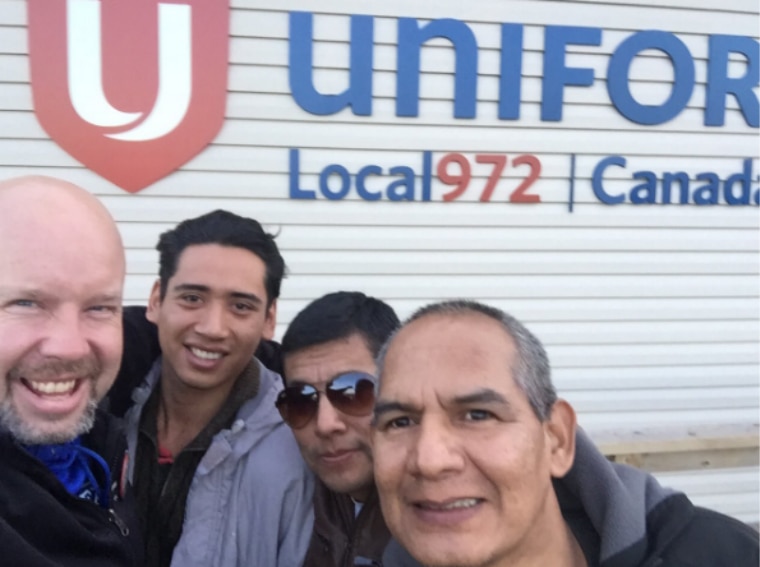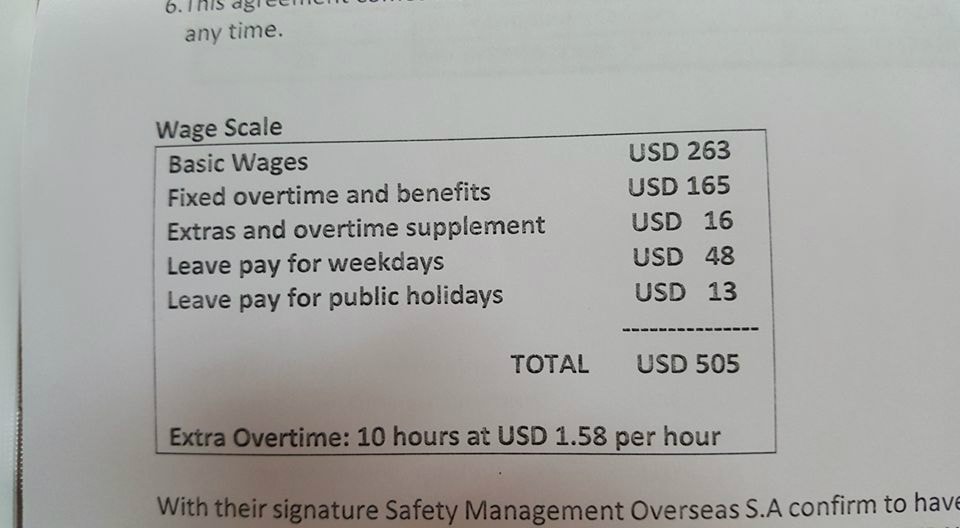KJIPUKTUK (Halifax) – A ship with a crew of five is stuck in Port Hawkesbury while an inspector for the International Transport Workers’ Federation (ITF) is trying to resolve issues around unpaid wages, bad working conditions and ship safety.
The sailors, three Peruvians, one from Honduras and one from the Dominican Republic, arrived here to take the Canadian-flagged ship The Dutch Runner to a Dominican shipyard to be refitted.
“This vessel is not in good condition,” says Karl Risser, the ITF inspector for Atlantic Canada and Unifor member. “The men are living on a vessel that isn’t properly powered, they’re using small space heaters for their rooms, and winter is coming very fast.”

“Working conditions in terms of health and safety are questionable,and they haven’t been paid properly. They may be as much as a month and a half behind in pay,” says Risser.
The ITF is an affiliation of transport worker unions that, among many other things, makes sure that the shipping industry is regulated effectively and workers are supported, regardless of their nationality or the flag of the ship.
Standards are set by the International Labour Organization, a United Nations agency and defined in the Maritime Labour Convention, sometimes referred to as the seafarers’ bill of rights..
Some of the most marginalized and isolated workers
The Dutch Runner may be one of the more serious cases Risser has encountered in his relatively short career as an inspector, but sadly such disregard for workers is not unusual, Risser says.
“These seafarers are some of the most marginalized and isolated workers, right under our noses,” says Risser. “The ILO sets a recommended minimum wage of $614 per month in basic wages. That’s not much per hour. And on top of that they often get ripped off.”
Canadians don’t realize that 90 percent of imported goods arrive here on ships, says Risser. “We enjoy the benefits, but we don’t treat the workers properly. They’re away from home, in foreign ports, and we have an obligation to make them feel welcome and allow them some basic rights,” he says.
When we talked with Risser on Wednesday, he was working with Transport Canada and the Canada Border Services Agency to ensure that the trip of the Dutch Runner to the Dominican port is a safe one. The workers have seen enough, and just want to get paid and go home, he says.
The crew is also receiving support from the Mission to Seafarers, based in Halifax. “Maggy (Whittingham-Lamont) is the local chaplain. She brought down clothes and necessities, and offers prayer and counseling to keep the guys going,” Risser says.
Race to the bottom
International trends and pressures make it unlikely that things will improve for the seafarers in the foreseeable future, Risser suggests.

At the root of the problem are the so-called flags of convenience. A flag of convenience ship is one that flies the flag of a country other than the country of ownership. This is something that the ITF opposes because for workers it often means very low wages and poor working conditions.
And international trade agreements such as CETA, the agreement between Canada and the European Union, will only make things worse, Risser says.
“CETA will open up Canada to flags of convenience that will come in and do Canadian cabotage (transport services). These ships would fly the flags of European countries like Malta,” Risser says. “If a ship is flagged in Europe then it can access the Canadian market. That doesn’t mean they have a European crew. They’re going to have Filipino crews, Indian crews, Chinese crews.”
“The shipping industry is very competitive, and it is a race to the bottom,” says Risser.
If you can, please support the Nova Scotia Advocate so that it can continue to cover issues such as poverty, racism, exclusion, workers’ rights and the environment in Nova Scotia.



